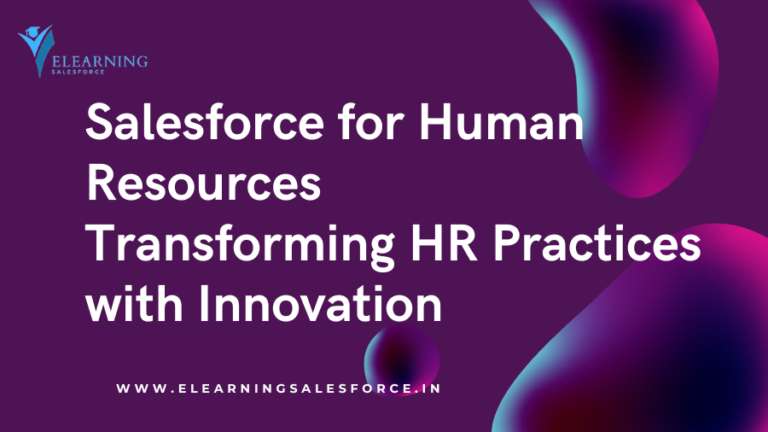Artificial Intelligence in Salesforce
chat (AI) has become a transformative force in various industries, and its integration into customer relationship management (CRM) systems like Salesforce, often referred to as “Artificial Intelligence in Salesforce,” has revolutionized the sales process. In this blog, we’ll explore the role of AI in Salesforce and how it has a profound impact on sales teams, from improving efficiency to enhancing customer relationships.
1. AI-Powered Sales Predictions
One of the most significant contributions of Artificial Intelligence in Salesforce is its ability to make accurate sales predictions. By analyzing historical data and identifying patterns, AI can forecast sales trends within Salesforce, helping sales teams allocate resources more effectively. Predictive analytics can also highlight potential upsell and cross-sell opportunities within the Salesforce platform, allowing sales reps to target their efforts efficiently.
2. Personalized Customer Experiences
AI-driven personalization within Artificial Intelligence in Salesforce is a game-changer for sales. Salesforce uses AI to analyze customer data and tailor interactions accordingly. Whether it’s recommending products, customizing email content, or suggesting next steps in a sales cycle, AI within Salesforce ensures that each customer feels valued and receives relevant information, leading to increased engagement and conversion rates.
3. Automated Lead Scoring and Qualification
Artificial Intelligence in Salesforce automates lead scoring and qualification, saving sales reps valuable time. By analyzing lead data and behavior, AI within Salesforce can assign scores based on the likelihood of conversion. This means sales teams can focus their efforts on high-potential leads and nurture them more effectively, ultimately boosting conversion rates and revenue.
4. Chatbots for Instant Support
Artificial Intelligence in Salesforce powers chatbots integrated into the platform, providing instant support to customers and prospects. These chatbots can answer common queries, assist with account inquiries, and even schedule appointments with sales reps. By automating routine tasks, chatbots within Salesforce free up sales teams to focus on more complex tasks and building relationships.
5. Enhanced Sales Insights
AI-driven analytics in Salesforce offer sales teams deeper insights into customer behavior and preferences. These insights empower sales reps to make data-backed decisions, identify trends, and adapt their strategies accordingly. This data-driven approach increases the efficiency of sales efforts and ensures that resources are directed where they will have the most impact.
Salesforce’s Einstein AI can automate many aspects of the sales process. For instance, it can automatically update records, send follow-up emails, and schedule appointments. This automation reduces manual data entry, minimizes the risk of errors, and ensures that sales reps can focus on building relationships and closing deals.
7. Improved Sales Forecasting
AI in Salesforce enhances sales forecasting accuracy. By analyzing historical data and real-time information, AI can provide more reliable revenue forecasts. This not only aids in budgeting and resource allocation but also helps organizations make informed strategic decisions.
8. Sales Performance Analytics
AI-powered analytics tools in Salesforce allow sales managers to assess the performance of individual sales reps and teams. These insights help identify areas for improvement, provide coaching opportunities, and set realistic sales targets. As a result, sales teams can continually refine their strategies and achieve better results.
9. Proactive Customer Engagement
AI can enable proactive customer engagement by sending alerts to sales reps when specific customer actions or triggers occur. For example, if a customer expresses interest in a product or displays signs of churn, AI can prompt sales reps to reach out with timely and relevant communications, ultimately preserving and strengthening customer relationships.
Conclusion
The integration of Artificial Intelligence into Salesforce has transformed the sales landscape. It empowers sales teams to work smarter, not just harder, by providing actionable insights, automating routine tasks, and enhancing customer interactions. With AI’s help, Salesforce users can predict sales trends, personalize customer experiences, and drive revenue growth. As AI continues to advance, its role in Salesforce will only become more vital, solidifying its impact on the future of sales. Embracing these AI-driven tools can be a game-changer for businesses looking to stay competitive and thrive in the evolving sales environment.




